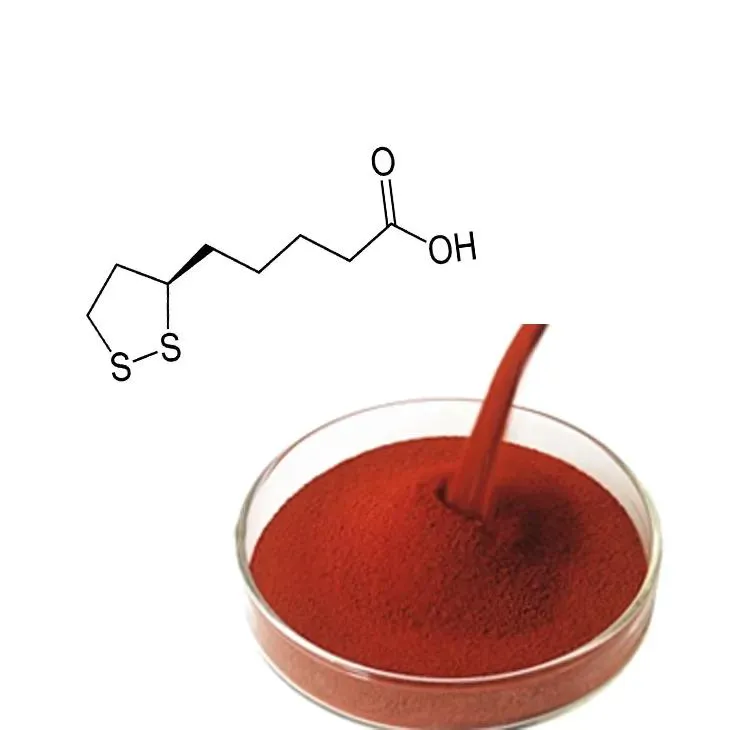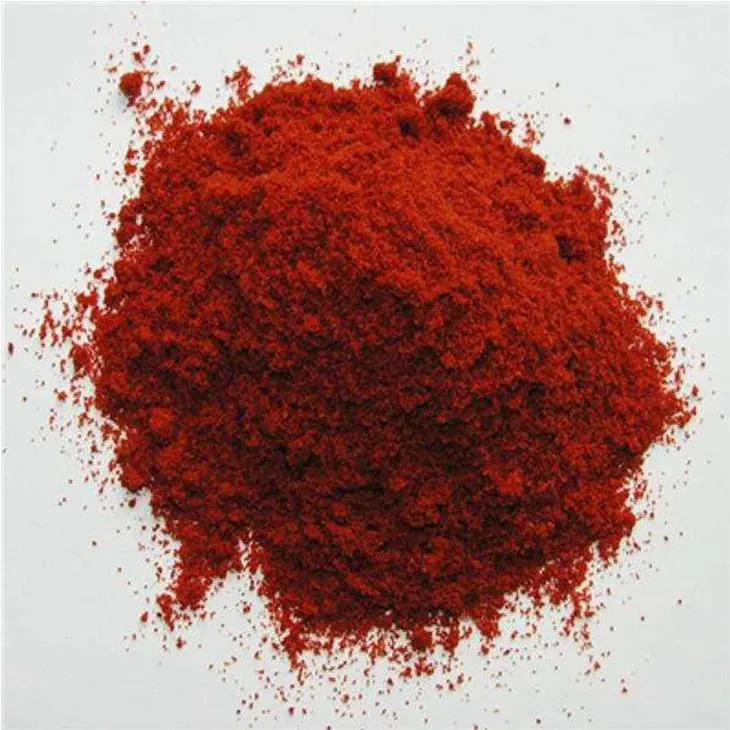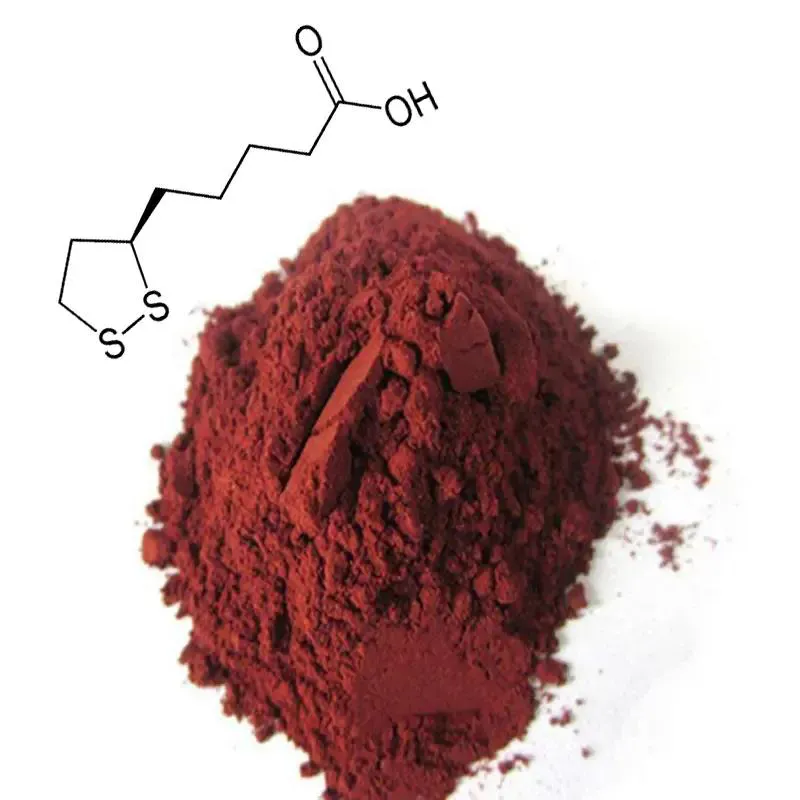- 0086-571-85302990
- sales@greenskybio.com
Organic Non - GMO Astaxanthin.
2024-12-01

Introduction to Astaxanthin
Astaxanthin is a pigment that belongs to the carotenoid family. It is found in various natural sources such as microalgae, yeast, salmon, and shrimp. However, not all Astaxanthin is created equal. The organic non - GMO variety stands out for several reasons.

Bioavailability of Organic Non - GMO Astaxanthin
High Bioavailability: One of the most significant features of organic non - GMO astaxanthin is its high bioavailability. Bioavailability refers to the proportion of a substance that enters the circulation when introduced into the body and can be used by the body's cells. In the case of astaxanthin, its chemical structure allows it to be easily absorbed by the body.
When we consume food or supplements containing astaxanthin, it needs to be absorbed through the digestive system. Organic non - GMO astaxanthin has a unique lipid - soluble nature that enables it to pass through the cell membranes more easily compared to other antioxidants. This means that it can reach the cells where it can exert its antioxidant effects more effectively.
For example, in a study comparing different forms of antioxidants, organic non - GMO astaxanthin showed superior absorption rates. This high bioavailability is crucial because it ensures that the body can make the most of the astaxanthin consumed, maximizing its potential health benefits.

Antioxidant Properties
Neutralizing Free Radicals: Astaxanthin is a powerful antioxidant. Free radicals are highly reactive molecules that are produced in the body as a result of normal metabolic processes, as well as exposure to environmental factors such as pollution, radiation, and cigarette smoke. These free radicals can cause damage to cells, proteins, and DNA.
Organic non - GMO astaxanthin has the ability to donate electrons to free radicals, thereby neutralizing them. This antioxidant action is much stronger compared to other common antioxidants like vitamin C and vitamin E. For instance, astaxanthin can scavenge a wider range of free radicals, including singlet oxygen, which is one of the most reactive and damaging free radicals.
By neutralizing free radicals, astaxanthin helps to protect cells from oxidative stress. Oxidative stress has been linked to a variety of health problems, including premature aging, cancer, and neurodegenerative diseases. Thus, the antioxidant properties of organic non - GMO astaxanthin play a vital role in maintaining overall health.

Benefits for Cardiovascular Health
Lowering Blood Pressure: Cardiovascular disease is one of the leading causes of death worldwide. One of the ways in which organic non - GMO astaxanthin can contribute to cardiovascular health is by helping to lower blood pressure. High blood pressure puts strain on the heart and blood vessels, increasing the risk of heart attacks, strokes, and other cardiovascular problems.
Studies have shown that astaxanthin can relax the blood vessels, reducing the resistance to blood flow. This relaxation is thought to be due to its antioxidant and anti - inflammatory properties. By reducing blood pressure, astaxanthin can help to improve the overall function of the cardiovascular system.
Reducing Heart Disease Risk: In addition to lowering blood pressure, organic non - GMO astaxanthin may also reduce the risk of heart disease in other ways. It can help to reduce the levels of LDL cholesterol (the "bad" cholesterol) in the blood while increasing the levels of HDL cholesterol (the "good" cholesterol). This balance is important for maintaining healthy blood lipid profiles.
Furthermore, astaxanthin can also prevent the oxidation of LDL cholesterol. Oxidized LDL cholesterol is more likely to be deposited in the arteries, leading to the formation of plaques. By preventing this oxidation, astaxanthin helps to keep the arteries clean and reduces the risk of atherosclerosis, a major contributor to heart disease.
Anti - Inflammatory Effects
Benefiting Joint Health: Inflammation is a natural response of the body to injury or infection. However, chronic inflammation can lead to a variety of health problems, including joint diseases such as arthritis. Organic non - GMO astaxanthin has significant anti - inflammatory effects.
In the case of joint health, astaxanthin can reduce the production of inflammatory cytokines in the joints. These cytokines are molecules that play a key role in the inflammatory process. By reducing their production, astaxanthin can help to减轻 pain and stiffness associated with arthritis. For example, in some patients with rheumatoid arthritis, supplementation with astaxanthin has shown improvement in joint function and a reduction in pain levels.
Moreover, astaxanthin can also protect the joint tissues from oxidative damage. The combination of its antioxidant and anti - inflammatory properties makes it an ideal supplement for maintaining healthy joints.
Organic and Non - GMO: Ethical and Environmental Significance
Ethical Considerations: The fact that organic non - GMO astaxanthin is produced in an organic and non - GMO manner has important ethical implications. Organic production methods ensure that the astaxanthin is produced without the use of synthetic pesticides, fertilizers, or genetically modified organisms. This is important for those who are concerned about animal welfare and the ethical treatment of living organisms.
For example, in non - organic production of some substances, animals may be exposed to harmful chemicals or genetically modified feed. By choosing organic non - GMO astaxanthin, consumers can support products that are produced in a more ethical way.
Environmental Impact: Organic production also has a positive environmental impact. Organic farming methods promote soil health, biodiversity, and water conservation. Non - GMO production helps to maintain the natural genetic diversity of organisms.
When it comes to astaxanthin production, organic and non - GMO methods ensure that the microalgae or other sources are grown in a sustainable environment. This reduces the carbon footprint associated with production and helps to protect the ecosystems where these organisms are found. For example, organic farming of microalgae for astaxanthin production can contribute to the conservation of water resources and the protection of marine ecosystems.
Conclusion
Organic non - GMO astaxanthin is truly a superior choice. Its high bioavailability, powerful antioxidant properties, benefits for cardiovascular health, anti - inflammatory effects, and ethical and environmental significance make it an ideal supplement for those looking to improve their health while also making a positive impact on the planet.
Whether it is for protecting cells from oxidative damage, reducing the risk of heart disease, alleviating joint pain, or simply supporting a more sustainable and ethical lifestyle, organic non - GMO astaxanthin offers a wide range of benefits. As more research is conducted on this remarkable compound, its potential uses and benefits are likely to become even more apparent.
FAQ:
What is Organic Non - GMO Astaxanthin?
Organic Non - GMO Astaxanthin is a special form of astaxanthin. It is produced without the use of genetically modified organisms and follows organic production methods. It is a highly bioavailable antioxidant that offers various health benefits such as protecting cells from free radical damage, supporting cardiovascular health, and having anti - inflammatory effects on joints.
Why is it considered a superior choice?
It is considered a superior choice because it combines the benefits of astaxanthin as a powerful antioxidant with the advantages of being organic and non - GMO. Its antioxidant properties help the body fight against free radicals that can cause cell and DNA damage. Additionally, for health, it may contribute to cardiovascular health and joint health. From an ethical and environmental perspective, its production respects nature and biodiversity.
How does it benefit cardiovascular health?
It may benefit cardiovascular health by potentially helping to lower blood pressure. By reducing blood pressure, it can in turn reduce the risk of heart disease. Its antioxidant and anti - inflammatory properties also play a role in maintaining the overall health of the cardiovascular system.
What are the anti - inflammatory effects on joints?
The anti - inflammatory effects on joints can help reduce pain and stiffness associated with arthritis. It helps to combat the inflammation in the joints, which is often the cause of discomfort. This makes it potentially beneficial for those suffering from joint - related problems.
Why are the organic and non - GMO aspects important?
The organic and non - GMO aspects are important for both health and ethical - environmental reasons. From a health perspective, it provides a more natural and potentially safer option. Ethically, it supports sustainable and natural production methods. Environmentally, it is produced in a way that respects nature and biodiversity.
Related literature
- The Health Benefits of Organic Astaxanthin"
- "Non - GMO Astaxanthin: Production and Its Impact on Health"
- "Astaxanthin: Organic and Non - GMO Sources for Optimal Health"
- ▶ Hesperidin
- ▶ Citrus Bioflavonoids
- ▶ Plant Extract
- ▶ lycopene
- ▶ Diosmin
- ▶ Grape seed extract
- ▶ Sea buckthorn Juice Powder
- ▶ Fruit Juice Powder
- ▶ Hops Extract
- ▶ Artichoke Extract
- ▶ Mushroom extract
- ▶ Astaxanthin
- ▶ Green Tea Extract
- ▶ Curcumin
- ▶ Horse Chestnut Extract
- ▶ Other Product
- ▶ Boswellia Serrata Extract
- ▶ Resveratrol
- ▶ Marigold Extract
- ▶ Grape Leaf Extract
- ▶ New Product
- ▶ Aminolevulinic acid
- ▶ Cranberry Extract
- ▶ Red Yeast Rice
- ▶ Red Wine Extract
-
Agaricus Blazei Extract
2024-12-01
-
Sophora Flavescens Root Extract
2024-12-01
-
Hesperidin
2024-12-01
-
Artichoke Leaf Extract
2024-12-01
-
Longan Extract
2024-12-01
-
Okra Extract
2024-12-01
-
Diosmin
2024-12-01
-
Angelica sinensis extract
2024-12-01
-
Beetroot Powder
2024-12-01
-
Saffron Extract Powder
2024-12-01





















